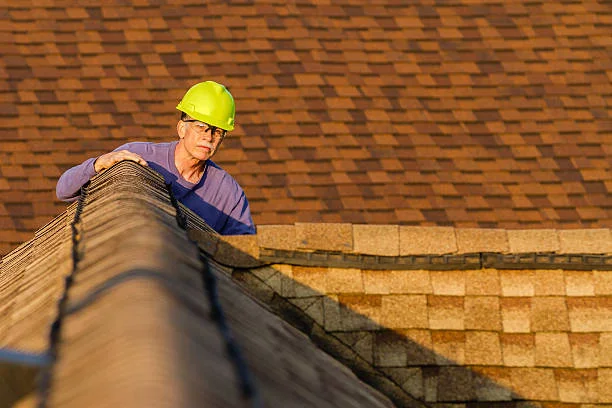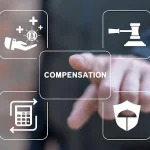Your roof does more than keep the rain out—it’s the first line of defense for your home’s structure, energy efficiency, and long-term value. Yet many homeowners tend to forget about it until something goes wrong. When problems arise, they often come with a hefty price tag and urgent need for repairs. To avoid costly surprises, it’s essential to understand the role of roofing contractors and the importance of thorough roof inspections. We will explore how roofing professionals help maintain the integrity of your home, what goes into a proper inspection, and how to stay proactive with your roof’s health.
This knowledge empowers homeowners to make informed decisions and prevent minor issues from escalating into expensive damage. Whether you’re planning routine maintenance or facing a roof replacement, understanding the basics of who to hire and what inspections cover can save you time, stress, and money in the long run.
How Roofing Contractors and Roof Inspections Work Together
The Role of Roofing Contractors in Roof Care
Roofing contractors are trained to manage the many layers of a roofing system—from the structural base to waterproof barriers and top shingles or metal panels. When you hire a contractor, you’re working with someone who understands the technical and physical requirements of roof construction and repair. Their responsibilities range from diagnosing leaks to managing complete roof installations. Concord roofing contractors also ensure proper ventilation, drainage, and compliance with local building codes, which can be easily overlooked during DIY repairs or quick fixes. A contractor not only completes the job but helps guide material selection, explains warranties, and ensures long-term performance.
Contractors usually begin with a visual inspection or damage assessment before proposing any solutions. If repairs are needed, they handle sourcing the right materials and completing the work to safety and industry standards. They also serve as the communication point between you and your insurance company in the event of storm damage claims. This collaboration helps homeowners avoid missteps that can void warranties or result in code violations. Ultimately, a roofing contractor plays a guiding role throughout the lifespan of your roof—from installation to ongoing maintenance and eventual replacement. Understanding how they function allows you to evaluate their work confidently and invest in your home wisely.
Explore related articles to deepen your understanding before you go.
Why Regular Roof Inspections Are Crucial
A roof may look fine from the ground, but that doesn’t mean it’s problem-free. Wind, UV rays, temperature fluctuations, and moisture gradually wear down roofing materials, even when there’s no visible damage. This is where roof inspections prove their value. A thorough inspection can reveal cracked flashing, curled shingles, minor leaks, or inadequate attic ventilation—issues that may not be noticeable until they lead to costly interior damage. Roof inspections help homeowners take action early, which often results in less invasive repairs and lower costs.
Typically, a roof inspection should occur at least once a year, and always after severe weather events have occurred. During an inspection, contractors assess the structural integrity, material deterioration, water damage, and ventilation issues. They examine gutters, downspouts, and seals around vents and chimneys to identify weak spots. They may also inspect the attic to assess insulation and look for mold or moisture buildup. The report generated afterward provides valuable documentation you can use when filing insurance claims, selling your home, or planning a future roof replacement. Regular inspections are a preventive measure that protects your investment and maintains your home’s energy efficiency and comfort throughout the year.
When to Call for a Roof Inspection
Waiting until a water spot appears on your ceiling is the worst time to think about your roof. Roof inspections should be scheduled when purchasing a home, after a major storm, and during spring or fall as part of seasonal maintenance. These key moments help catch vulnerabilities before they worsen. For instance, hailstorms can cause granule loss or hidden punctures that compromise your roof’s integrity over time. Detecting those early can prevent leaks or wood rot from setting in. Likewise, an inspection before buying a home can reveal if the roof will need repairs or replacement soon, helping buyers negotiate a more favorable price or request updates before closing.
Roof inspections are also vital before adding solar panels or conducting major renovations. These installations add weight and require secure attachment points, which aren’t always present in older or weakened roofing systems. Ensuring your roof can support new structures protects both your investment and the professionals performing the work. Failing to conduct these timely inspections can lead to complications, insurance disputes, or safety hazards. Knowing when to bring in a contractor for an assessment builds a strong habit of preventative maintenance, giving you peace of mind year after year.
Understanding how roofing contractors and roof inspections work together helps homeowners stay ahead of potential problems and maintain their homes with confidence. A well-maintained roof protects everything beneath it—your family, your belongings, and your property’s value. By selecting the right contractor and scheduling regular inspections, you can take control of your home’s health and reduce the likelihood of unexpected repairs. For now, remember: your roof can’t speak, but a good inspection and trustworthy contractor will tell you everything it needs to stay strong.
Thanks for reading—why not stick around and see what else is new?







